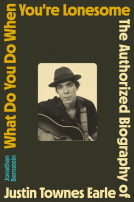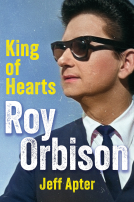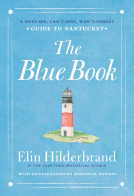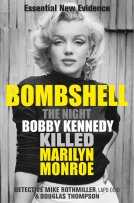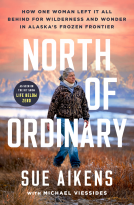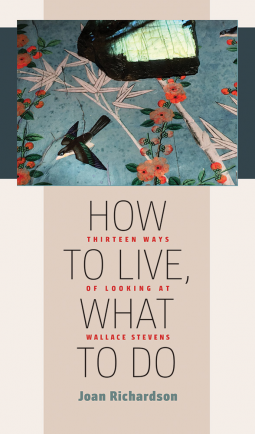
How to Live, What to Do
Thirteen Ways of Looking at Wallace Stevens
by Joan Richardson
This title was previously available on NetGalley and is now archived.
Send NetGalley books directly to your Kindle or Kindle app
1
To read on a Kindle or Kindle app, please add kindle@netgalley.com as an approved email address to receive files in your Amazon account. Click here for step-by-step instructions.
2
Also find your Kindle email address within your Amazon account, and enter it here.
Pub Date Mar 01 2018 | Archive Date Mar 01 2018
University of Iowa Press | Muse Books
Talking about this book? Use #HowToLiveWhatToDo #NetGalley. More hashtag tips!
Description
How to Live, What to Do is an indispensable introduction to and guide through the work of a poet equal in power and sensibility to Shakespeare and Milton.
Joan Richardson, author of the standard two-volume critical biography of Stevens and coeditor with Frank Kermode of the Library of America edition of the Collected Poetry and Prose, offers concise, lucid captures of Stevens’s development and achievement. Over the ten years of researching her Stevens biography, Richardson read all that he read, as well as his complete correspondence, journals, and notebooks. She weaves the details drawn from this deep involvement into the background of American cultural history of the period. This fabric is further enlivened by her preparation in philosophy and the sciences, creating in these thirteen panels a contemporary version of a medieval tapestry sequence, with Stevens in the place of the unicorn, as it were, holding our attention and eliciting, as necessary angel, individual solutions to the riddles of our existence on this planet spinning and hissing around its cooling star at 18.5 miles per second.
Advance Praise
“‘Exercises in meditation,’ Joan Richardson calls Stevens’s poetry, ‘designed to loosen inherited, outworn habits of thought.’ This compelling book—her own set of adventurous meditations at once inward and capacious—is a wonderful gift to specialists and the general reader alike from one of the poet’s indispensable readers.”—Ross Posnock, Columbia University
“Joan Richardson, in her virtuoso distillation of Wallace Stevens, performs a resonant, moving act of homage. With inspired leaps, aural sensitivity, philosophical depth, and science-blessed visionary capacities, she enlarges our sense of how a poem can behave, and of how we can use poetry to live more passionately.”—Wayne Koestenbaum, author, My 1980s & Other Essays
“In this concise primer on Wallace Stevens, Joan Richardson offers an elegantly organized constellation of important sources and angles that bring us inside the world of Stevens’s remarkable poetry. Most impressive and moving to me, however, is Richardson’s attention to the ‘difficult wonder’ of thinking, which she deems Stevens’s final subject. ‘In our accelerated climate we do gradually but actually lose the sense of thinking, how thinking feels,’ Richardson writes; it is her great gift to us—one she shares with her subject—to have the capacity to call the reader back to this voluptuous thinking, without which we are impoverished beyond measure.”—Maggie Nelson, author, The Argonauts
Available Editions
| EDITION | Paperback |
| ISBN | 9781609385491 |
| PRICE | $19.95 (USD) |
| PAGES | 132 |
Links
Average rating from 3 members
Featured Reviews
 Michael S, Reviewer
Michael S, Reviewer
This slim study is much more than what is blurbed and marketed by the publisher as a concise primer to the poetry of Wallace Stevens. Instead, the greater primer is to simply read his work. And if his poems resound, or connect to you in any way, further study may be warranted and result in your seeking out this book. But to begin here would be a grave mistake.
"It is not ‘how’ things are in the world that is mystical, but that it exists."
Wallace Stevens is in the realm of American greats the like of Emily Dickinson. He too can make one’s head explode. He also makes sense.
"Nonsense in grammatical form sounds half rational".
Stevens, through his poems, shaped a new language for us. He fashioned an instrument adequate in describing how to live and what to do in this strange new world of experience.
"…’ditherings’ accompany each and every predication, the undertones and overtones of every color of the mind."
Steven’s ditherings see what was always seen but never seen before. Elicited as our necessary angel he offers individual solutions to the riddles of our existence on this planet. Having read and studied everything Stevens wrote and even read himself, Joan Richardson provides an advanced course a scholar might take in discovering an even better way into the mind and work of Wallace Stevens. But this is not the book to initially begin with. Too much would be lost on the unspoiled and uninitiated among us.
"By reading through Stevens’s body of work we learn to become pragmatists…"
How refreshing it is to be practical, to see things as they are. And the mystery, and joy, in imagining what could be. When perceived as dogmatic one becomes a bore. Wallace Stevens opens us to a more expansive, and much wilder, world.
Finally, he (Stevens) noted,
"It is not an artifice that the mind has added to human nature. The mind has added nothing to human nature. It is a violence from within that protects us from a violence without. It is the imagination pressing back against the pressure of reality. It seems, in the last analysis, to have something to do with our self-preservation; and that, no doubt, is why the expression of it, the sound of words, helps us to live our lives…"
Joan Richardson has produced for us a most distinctive and valuable tool in which to help us view the world through the eyes of Wallace Stevens. And in essence, Stevens provides us new glasses in which we may see for ourselves the possibilities that will always exist if we maintain the courage to keep looking.
"Stevens’s poems are exercises in meditation, designed to loosen inherited, outworn habits of thought inappropriate to honoring the life of all things on the planet of which we are a part…"
 Anne M, Reviewer
Anne M, Reviewer
This is not a fast read as I had to keep putting it down to think about what Ms Richardson was saying. She is an expert in Stevens poetry, but you don't have to be, to enjoy this book. The author brings in Wittgenstein, Bergson, William James, Schopenhauer, Emerson and many more but the learning is worn lightly and the narrative is always on topic. Stevens comes across as a fascinating man.
"The slightest sound matters," Stevens wrote. "The most momentary rhythm matters... You have somehow to know the sound that is the exact sound and you do in fact know, without knowing how..."
"Stevens left the city almost every Sunday and walked into the New Jersey countryside, sometimes covering up to forty miles by the time he returned to his apartment in the early evening."
The book covers the man, the inspirations, the poetry and the impact he had on others. But it is always accessible and recommended if you like poetry and how it is created.
I was given a copy of this book by Netgalley in return for an honest review.
